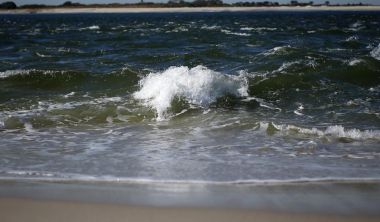Pope Francis on climate change: humans have 'slapped nature in the face'

Mankind has "slapped nature in the face" Pope Francis has said, as new research reveals that we are heading "towards an unsustainable future".
Speaking to journalists aboard the papal plane on Thursday, the Pope insisted that global warming is a result of human failure to take care of the planet, and urged politicians to make "courageous" decisions at the forthcoming climate change meeting in Paris.
Francis added that he was "disappointed" by "the lack of courage" shown at the climate talks in Peru, echoing environmental groups that were critical of the deal reached in December. Referring to successive drafts at the Lima talks, Samantha Smith of the WWF conservation group said at the time: "We went from weak to weaker to weakest."
"I think that man has gone overboard," the Pope said yesterday. "I remember – you already heard this – what an old peasant once told me: God always forgives, we men sometimes forgive, nature never forgives. If you slap it, it will always slap you back. Then, we exploited nature too much, with deforestations, for example."
The Pope's words come at a key time, as a group of international scientists this week published two studies revealing that the factors underpinning human life on Earth are at risk.
A staggering increase in urban populations and energy and fertiliser use, in addition to other factors, mean that the Earth could be reaching a "tipping point", the studies found.
"It's fairly safe to say that we haven't seen conditions in the past similar to ones we see today and there is strong evidence that there [are] tipping points we don't want to cross," said lead researcher Prof Will Steffen, of the Australian National University and the Stockholm Resilience Centre.
According to the Guardian, Steffen added: "If the Earth is going to move to a warmer state, 5-6C warmer, with no ice caps, it will do so and that won't be good for large mammals like us. People say the world is robust and that's true, there will be life on Earth, but the Earth won't be robust for us.
"Some people say we can adapt due to technology, but that's a belief system, it's not based on fact. There is no convincing evidence that a large mammal, with a core body temperature of 37C, will be able to evolve that quickly. Insects can, but humans can't and that's a problem."
Steffen also said there is no evidence to suggest that these factors are "slowing down", and blamed the economic system for being "fundamentally flawed" in its pursuit of wealth at the expense of the environment.
"When economic systems went into overdrive, there was a massive increase in resource use and pollution. It used to be confined to local and regional areas but we're now seeing this occurring on a global scale. These changes are down to human activity, not natural variability," he explained.
"It's clear the economic system is driving us towards an unsustainable future ... History has shown that civilisations have risen, stuck to their core values and then collapsed because they didn't change. That's where we are today."
The two studies will be presented at the World Economic Forum in Davos, which is due to take place 21-25 January 2015.
The Pope is preparing to publish an encyclical on climate change this summer, and has been vocal in his call for everyone to take personal responsibility for their relationship with nature.
Editor-in-chief of Science magazine, Marcia McNutt, labelled Francis a "powerful new ally" of the war on environmental degradation, and his concern has been attributed to his heart for the poor.
Argentinian Bishop Marchelo Sánchez Sorondo told The Tablet: "The Pope is very aware that the consequences of climate change affect all people, but especially the poor. This is the moral consequence, the moral imperative."











